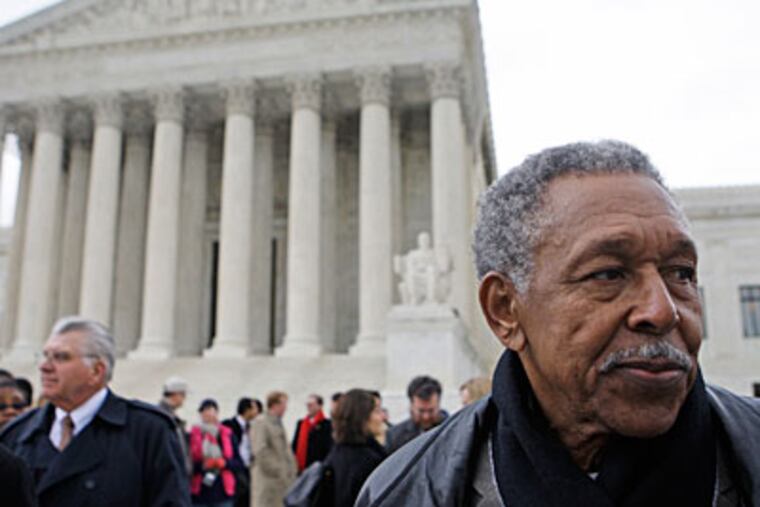Editorial: Ignoring guns' toll
While the Supreme Court's conservative majority remains fixated on expanding the right to bear arms, millions of other Americans should be more worried about preserving their right to be free from handgun violence.

While the Supreme Court's conservative majority remains fixated on expanding the right to bear arms, millions of other Americans should be more worried about preserving their right to be free from handgun violence.
In a ruling that came as no surprise, the court on Monday effectively outlawed local handgun bans - signaling the end of Chicago's 27-year ban as well as one in a nearby Illinois suburb. Two years ago, the same 5-4 majority scrapped a Washington, D.C., ban.
In his majority ruling, Justice Samuel A. Alito Jr. relied on the same tortured legal reasoning - that the Second Amendment assures individuals the right to arm, not merely state militias.
The court's position runs counter to decades of mainstream legal views on the Second Amendment. Yet that hasn't stopped Alito and his majority colleagues - Chief Justice John G. Roberts Jr. and Justices Antonin Scalia, Anthony M. Kennedy, and Clarence Thomas - from practicing this form of judicial activism.
The justices fortunately stopped well short of declaring an unlimited right to gun ownership, free from any legal restrictions. Still permissible, the court said, are restrictions on carrying weapons in schools and government buildings, bans on the carrying of weapons by felons or the mentally ill, and gun-sale rules.
So that leaves the door open for state and city officials to enforce and even expand meaningful gun-safety laws.
With New Jersey's highly effective gun laws, there's little fear the restrictions will fall to a legal challenge, according to Bryan Miller, Project Director of Ceasefire NJ., the anti-gun-violence group. Nor should they, since, as Miller notes, the state has "among the lowest per-capita rates of gun deaths in the country."
In Pennsylvania, the Supreme Court ruling should serve as a rallying cry behind the groundswell of support in towns and cities for better gun-safety laws.
Recent court victories have been logged by Philadelphia and Pittsburgh in defending against the National Rifle Association local ordinances that target gun trafficking. More than two-dozen communities now require reporting lost or stolen handguns, with an additional 15 towns and cities joining in the call for Harrisburg lawmakers to pass a statewide law.
Voters' choice for governor in November could determine the progress made on gun safety, as well. For instance, Democratic Allegheny County Executive Dan Onorato wants to close the out-of-state gun-permit loophole, while Republican State Attorney General Tom Corbett hasn't supported any expansion of gun-control laws.
While five justices may ignore the 60,000 people killed and wounded yearly by handguns, the rest of the nation's leaders must do everything within their power to stem the carnage.